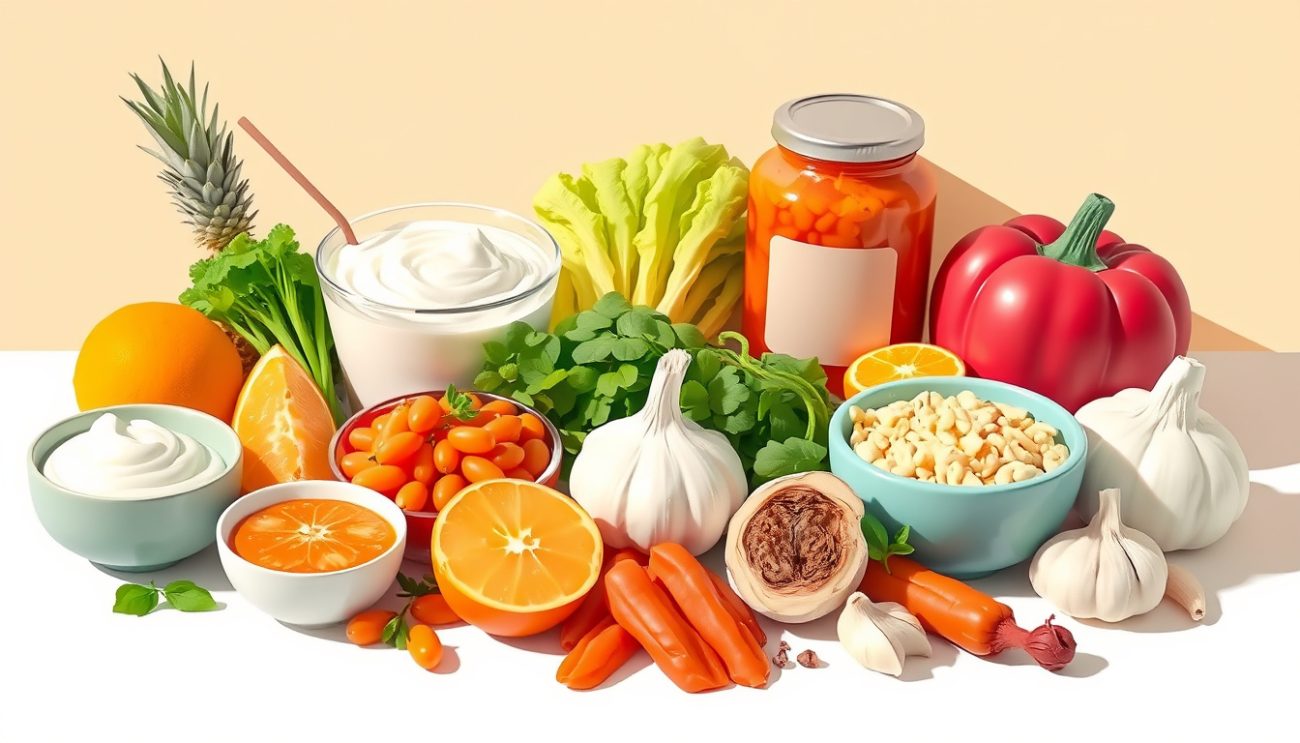Discover the Top 10 Gut Health Foods That Will Transform Your Digestive Wellness
Maintaining a healthy gut is essential for overall well-being, impacting digestion, immunity, mood, and even weight management. The secret to a thriving digestive system often lies in what you eat. Incorporating specific gut-friendly foods can

Maintaining a healthy gut is essential for overall well-being, impacting digestion, immunity, mood, and even weight management. The secret to a thriving digestive system often lies in what you eat. Incorporating specific gut-friendly foods can enhance your microbiome—the community of trillions of bacteria residing in your digestive tract—and support smooth digestion. Here, we explore the top 10 foods that promote optimal gut health, based on scientific insights and expert recommendations.
1. Whole Grains
Whole grains such as oats, brown rice, whole wheat bread, and barley are rich in dietary fiber, which is crucial for digestive health. Fiber adds bulk to stool, promoting regular bowel movements and preventing constipation. Additionally, when gut bacteria ferment fiber, they produce beneficial short-chain fatty acids that support colon health and immunity.
Choosing whole grains over refined carbohydrates not only increases fiber intake but also supplies essential nutrients like omega-3 fatty acids. Despite the popularity of low-carb diets, eliminating grains may deprive your gut bacteria of necessary fuel.
2. Leafy Green Vegetables
Leafy greens like spinach, kale, and Swiss chard provide ample fiber along with important vitamins such as folate, vitamin C, K, and A. Unique sugars found in these greens help nourish beneficial gut bacteria, fostering a diverse and balanced microbiome.
Besides their high fiber content, leafy greens are excellent sources of magnesium, a mineral that supports the muscle contractions needed to move food through the digestive tract efficiently.
3. Fruits Low in Fructose
Fruits are natural sources of fiber, antioxidants, and hydration, all of which aid digestion. However, some high-fructose fruits like apples, pears, and mangoes may cause gas and bloating in sensitive individuals.
Low-fructose fruits such as berries, oranges, grapefruit, and bananas are gentler on the gut. Bananas, in particular, contain inulin—a type of prebiotic fiber that stimulates beneficial bacteria growth.
4. Yogurt and Other Probiotic-Rich Foods
Yogurt with live and active cultures introduces probiotics—beneficial bacteria—directly into your gut microbiome. These microbes help balance intestinal flora, improve digestion, and may reduce bloating.
Other fermented foods rich in probiotics include certain cheeses, kombucha, kimchi, pickles, and sauerkraut. Regular consumption of these can enhance microbial diversity, contributing to a healthier digestive system.
5. Avocados
Avocados are fiber-dense and packed with essential nutrients like potassium, which helps regulate digestive function. They are also low in fructose, making them less likely to cause digestive discomfort.
While avocados are nutritious, it’s important to consume them in moderation due to their high-fat content, albeit primarily of the healthy unsaturated type.
6. Lean Proteins
For those prone to digestive issues, especially conditions like irritable bowel syndrome (IBS), choosing lean proteins such as poultry, fish, and plant-based proteins helps avoid triggering colon contractions associated with high-fat and fried foods.
Limiting red meat consumption benefits gut health as well; high-fat content in red meat can negatively impact gut bacteria and increase the risk of cardiovascular diseases.
7. Prebiotic Foods
Prebiotics are fibrous compounds that serve as nourishment for the good bacteria residing in your gut. These include foods rich in complex carbohydrates like garlic, onions, leeks, asparagus, oats, sweet potatoes, flax seeds, and carrots.
Including prebiotic foods supports microbial growth and diversity, crucial for gut balance and immune health.
8. Hydrating Foods and Fluids
Adequate hydration plays a vital role in digestion, helping to keep stools soft and facilitating nutrient absorption. Water-rich fruits and vegetables, along with drinking plenty of fluids throughout the day, ensure your digestive system functions smoothly.
9. Nuts and Seeds
Nuts like almonds and walnuts and seeds such as flax and chia provide fiber, healthy fats, and micronutrients. These nourishing foods support gut bacteria and contribute to regular bowel movements.
That said, due to their fat content, nuts and seeds should be eaten in moderation to avoid potential digestive discomfort.
10. Fiber-Rich Vegetables
Vegetables like carrots, broccoli, Brussels sprouts, and cauliflower are high in fiber and contain beneficial nutrients that promote gut motility and microbiome diversity.

Including a variety of colorful vegetables in your diet ensures a wide range of prebiotics and antioxidants to support gut health comprehensively.
Tips for Supporting Gut Health Through Diet
- Eat regular, balanced meals: Maintaining consistent meal times helps regulate digestion.
- Incorporate both probiotics and prebiotics: Together, they foster a healthy and balanced gut flora.
- Limit processed and fried foods: These tend to be low in fiber and high in unhealthy fats, which can disrupt gut bacteria.
- Manage portions: Even healthy fats found in nuts, seeds, and avocados should be consumed thoughtfully.
- Stay physically active: Exercise stimulates digestion and contributes to overall wellness.
- Listen to your body: Individual responses to foods vary, so adjust your diet according to your digestive tolerance.
Conclusion
Transforming your digestive wellness starts with mindful, gut-friendly food choices. By incorporating these top 10 gut health foods into your daily diet, you nourish your microbiome, support digestion, and boost immune function. A healthy gut contributes not just to comfort and vitality, but also to overall lifelong health and well-being.
Embrace fiber-rich whole grains, colorful leafy greens, probiotic-rich fermented foods, and an abundance of fruits and vegetables to experience the powerful benefits of a flourishing gut.



